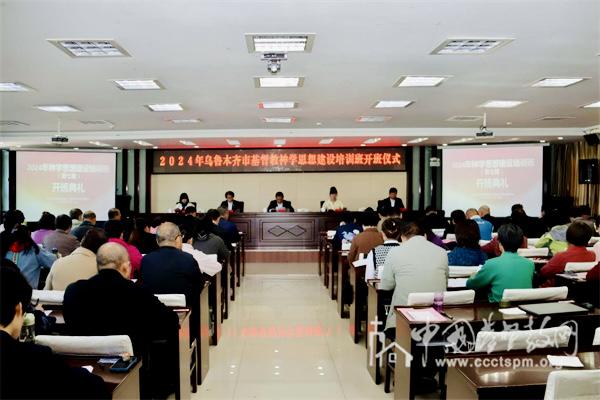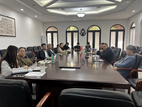The seventh training session for the development of theological thought was held in Urumqi, Xinjiang.
Co-organized by Urumqi CC&TSPM and the United Front Work Department of the Urumqi Municipal Committee of the Chinese Communist Party from September 10 to 13, the training course was conducted at the Socialist Academy in Shuixigou Town, a suburb of Urumqi, said CCC&TSPM.
It was attended by 99 persons, including clergy and volunteer pastors from 17 churches across the city, as well as members of the democratic management committee of temples.
During the four-day training session, Professor Niu Ruji, vice president of Xinjiang Normal University, delivered a keynote lecture titled “The Sinicization of Christianity during the Tang (618-917) and Yuan (1271-1368) dynasties and the Introduction of Modern Protestantism into Xinjiang.” Dr. Chen Yuexin, vice president of Yanjing Theological Seminary, gave a lecture with the title “Dogmatic Approaches to Sinicization of Christianity.”
Rev. Geng Weizhong, vice president of the China Christian Council, explored the topic “The Founding of New China and the Three-Self Patriotic Movement” from a historical perspective and through different phases. He also shared a lecture titled “Strengthening Church Governance and Implementing the 'Constitution of the China Christian Church '(hereinafter referred to as the Constitution)” from four aspects: the background of the formulation and revision of the Constitution, the significance of the Constitution, strict governance of the church, and the Constitution and the sinicization of Christianity.
Rev. Zhang Yaofa, president of the Zhejiang Christian Council and the Hangzhou Christian Council, gave a lecture titled “Sharing on Pastoral Conflicts and Church Management.” Drawing from his pastoral experience, Reverend Zhang discussed the causes and resolution of pastoral conflicts, explored biblical management principles, and shared management methods, examining Chinese-style church management.
During the training, all participants were divided into groups by region to discuss the lectures, the sinicization of Christianity, the Chinese Dream of national rejuvenation, and the practice of the sinicization of Christianity along the Silk Road.












